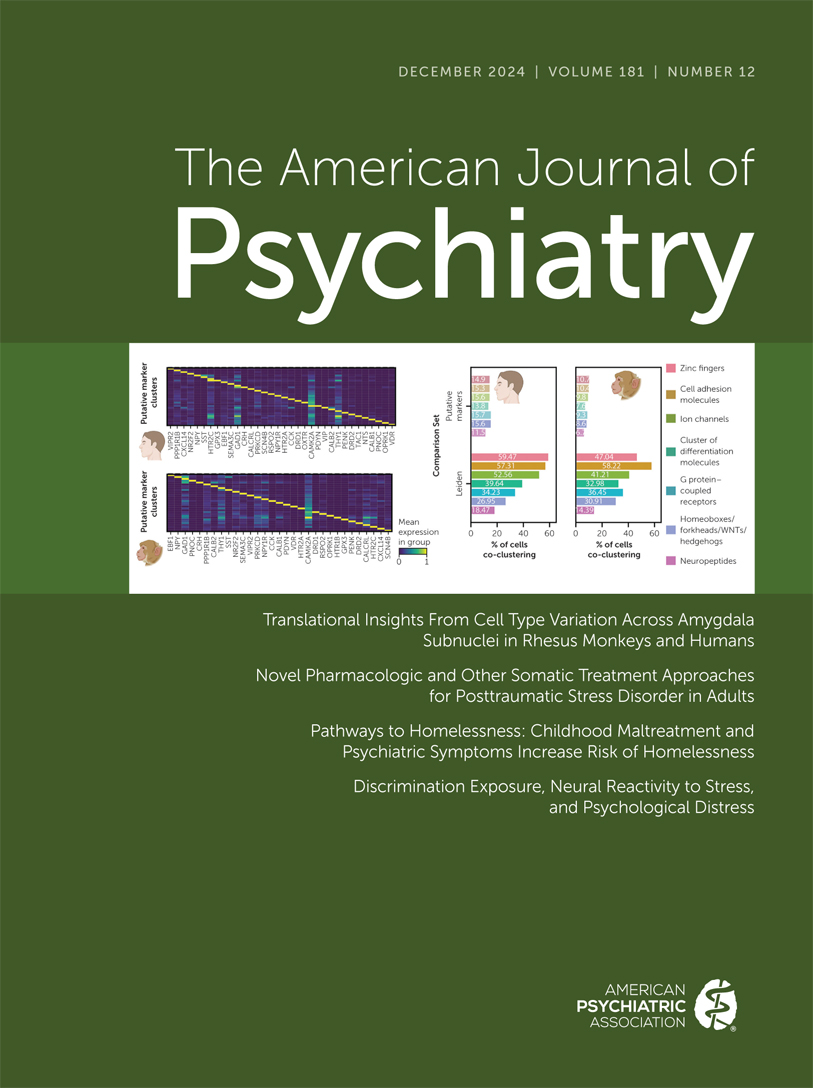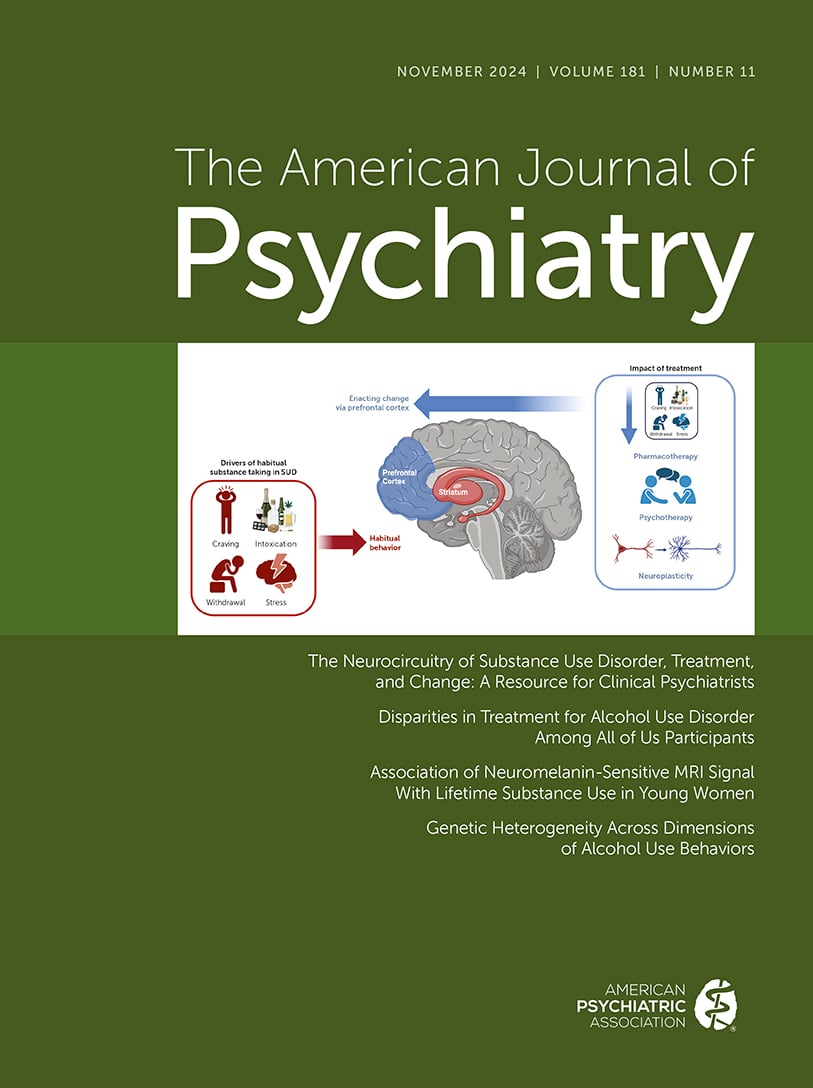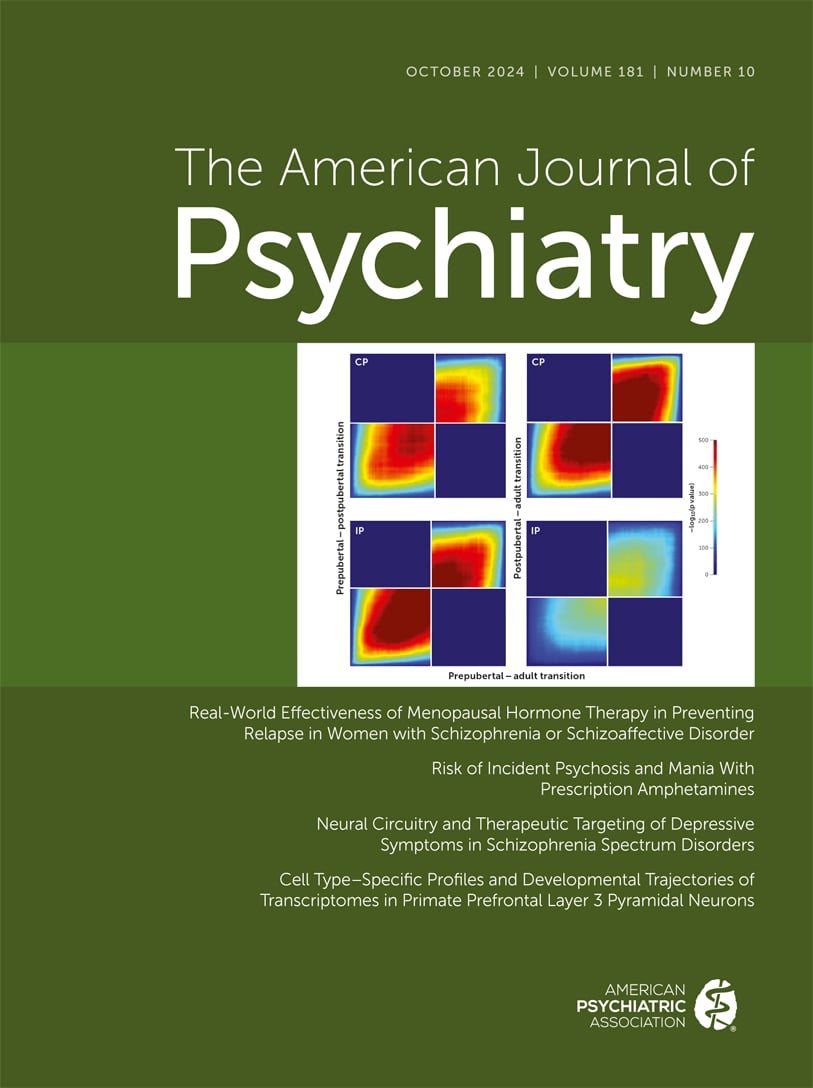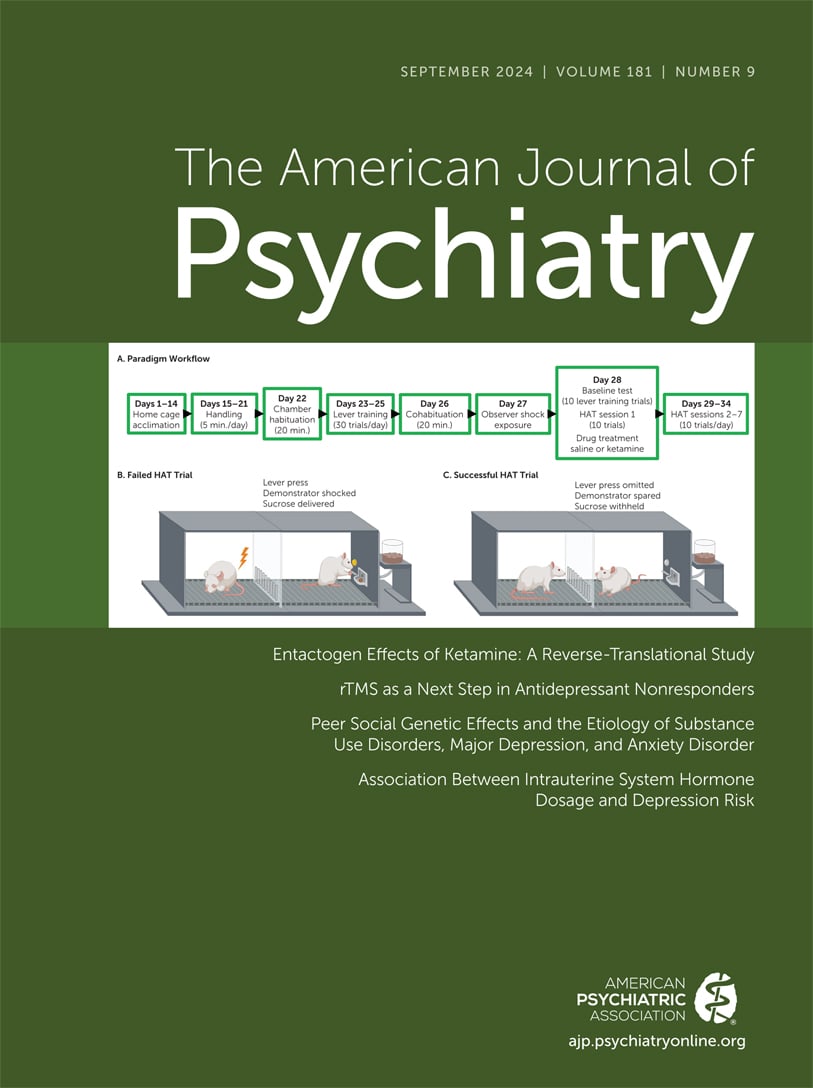American Journal of Psychiatry
- Volume 116
- Number 6
- December 1959
Article
Publication date: 01 December 1959
Pages495–509In 1955 the New York State mental hospitals undertook a large-scale program of tranquilizing drug therapy which during the first full year of its operation reached 27.9% of all cases(2). This was a 250% increase of use of somatic therapy in one year and ...
https://doi.org/10.1176/ajp.116.6.495Publication date: 01 December 1959
Pages514–517Medical practice with 7 families with a schizophrenic son or daughter regularly encountered difficulties in accomplishing medical evaluations and treatment. The use of medical services by the parents and the son or daughter was extensively involved in ...
https://doi.org/10.1176/ajp.116.6.514Publication date: 01 December 1959
Pages518–5211. Sixty percent of 416 general practitioner respondents felt that their psychiatric training was reasonably adequate. A desire for more presentations and informal discussions of office-type cases was expressed. 2. Generalists are in need of more ...
https://doi.org/10.1176/ajp.116.6.518RESEARCH IN HUMAN SUBJECTS AND THE ARTIFICIAL TRAUMATIC NEUROSIS: WHERE DOES OUR RESPONSIBILITY LIE?
Publication date: 01 December 1959
Pages522–526In conclusion it seems that if we are to continue doing research in clinical psychiatry on human subjects, we do have a responsibility to the subjects, to somehow protect them against the possible traumatic effects of an experiment. How this might best be ...
https://doi.org/10.1176/ajp.116.6.522Publication date: 01 December 1959
Pages527–532Experience in psychotherapy with over 300 hospitalized adolescents is described by brief reference to several important aspects of treatment. The patient's admission to the hospital is regarded as a critical phase in treatment. Here the doctor first ...
https://doi.org/10.1176/ajp.116.6.527Publication date: 01 December 1959
Pages533–536The thesis put forward in this paper is that school phobia is part of the natural history of the depressive disorders, and is but one of the modes of presentation of such disorders in childhood. A family constellation, the depressive constellation, has ...
https://doi.org/10.1176/ajp.116.6.533Publication date: 01 December 1959
Pages537–539I wish to stress the fact that it has always been the differentiation of aetiologically different psychiatric syndromes, that has made useful psychiatric classification possible by providing clear description of inherent characteristics. However, as there ...
https://doi.org/10.1176/ajp.116.6.537Publication date: 01 December 1959
Pages540–544A clinical study of 41 cases of school phobia confirmed the hypothesis that this syndrome is a variant of separation anxiety; the basic issue proved to be leaving home, not going to school. The outcome of these cases after a mean period of 3 years ...
https://doi.org/10.1176/ajp.116.6.540Publication date: 01 December 1959
Page545In a series of 25 patients on ataractic therapy and 25 other mental patients as controls, there was no essential difference in the incidence of increased protein or abnormal gold curves. The high incidence of abnormal findings in both of these groups, ...
https://doi.org/10.1176/ajp.116.6.545Publication date: 01 December 1959
Pages546–547The new quantitative serum bromide determination described is dependent upon oxidation of the bromide ion to free bromine and follows Beer's Law from a serum equivalent bromide concentration of 25 mg.% through 100 mg.%.
https://doi.org/10.1176/ajp.116.6.546Publication date: 01 December 1959
Pages547–548A note of optimism is indicated regarding the future of hospital-returned tranquilizing drug patients. At the close of 4 years of an extended chlorpromazine study on once extremely disturbed mental patients, 24 of 101 returned patients were once more ...
https://doi.org/10.1176/ajp.116.6.547Publication date: 01 December 1959
Pages548-2–551A specific urine color test for the piperazine-linked phenothiazine drugs (Compazine, Trilafon, Dartal, Stelazine, Prolixin, etc.) is reported, in which 1 ml. of urine is mixed with 1 ml. 10% trichloracetic acid. To this mixture 1 ml. of 1/1000 molar ...
https://doi.org/10.1176/ajp.116.6.548-2Publication date: 01 December 1959
Pages555–556A case is presented where a dose of 4,000 mg. triflupromazine daily was required to control a chronic schizophrenic. I wish to thank Dr. Charles I. Smith of The Squibb Institute for determining the plasma levels of triflupromazine.
https://doi.org/10.1176/ajp.116.6.555Past Issues
View Issues Archive
Vol. 181 | No. 12

Vol. 181 | No. 11

Vol. 181 | No. 10
